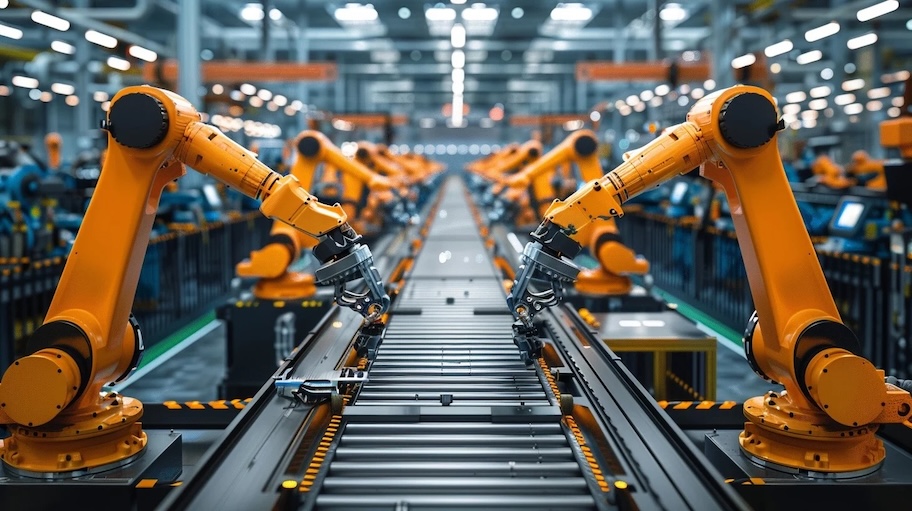Driving Efficiency and Security in Industrial Automation With Embedded Linux
Industrial automation is evolving rapidly, driven by the need for higher efficiency, flexibility, and safety in modern manufacturing. As production lines become connected and responsive, manufacturers use data-driven methods to optimize operations, cut downtime, and adapt faster to market demands. However, these gains come with challenges: handling large device fleets, meeting strict safety and security standards, and integrating older systems with modern technologies. Real-world insights further highlight the importance of strong edge solutions, as shown in 1 and 2.
 Generated by StockCake.com
Generated by StockCake.com
Embedded Linux systems are central to this transformation. They offer versatility, solid security, and easy integration, helping industrial automation platforms reach their potential. By powering high-performance Industrial Computers (IPCs) and securing on-site processing and real-time data insights, these systems meet crucial needs across the manufacturing sector. As noted in 3, using Linux frameworks can boost both data processing and operational efficiency.
Advancing Local Processing and Predictive Analytics
Flexible operating systems like Linux enable efficient data analysis at production sites, reducing delays and allowing faster responses to real-world demands. This is key for predictive maintenance and quality control, where local processing can spot anomalies and streamline workflows. According to 4, these solutions will see strong growth, with global spending on localized computing expected to reach $378 billion by 2028 5. Their scalability ensures even complex manufacturing setups run efficiently.
Tailored Solutions and Legacy System Integration
Industrial environments often require solutions that combine older hardware with emerging technologies. Linux, paired with tools like the Yocto Project 6, lets developers build custom operating systems for tasks like robotics and process optimization. As shown in 7, industries gain from tailored configurations that integrate smoothly with existing systems. This extends the life of older equipment, reduces disruptions, and enables efficient processes 8.
Security, Scalability, and Operational Control
As the industrial sector becomes interconnected, security and centralized management are crucial. Linux systems offer features such as Secure Boot and SELinux, helping prevent unauthorized access and protect vital operations. They also support the creation of Software Bills of Materials (SBOMs) to comply with standards like IEC 62443. Cloud-enabled management platforms further aid in configuring large fleets 9. These security and management tools align with key trends highlighted in 10.
Conclusion
Modern Linux systems are reshaping industrial automation by enabling real-time data analysis, strengthening security, and uniting older equipment with new technologies. These systems help manufacturers move toward efficient, reliable, and adaptive processes. As industrial networks become complex, the ability to securely manage large device fleets and meet strict standards remains crucial. Linux-based solutions address today’s problems and pave the way for sustainable, innovative, and competitive manufacturing. Their flexibility and power make them essential to the future of smart factories and adaptive production.